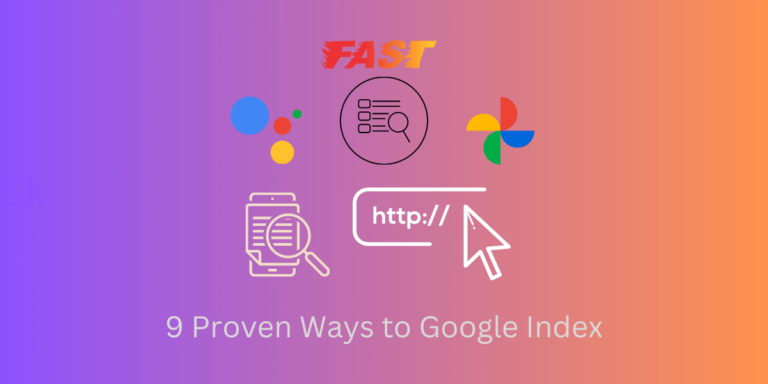How to Conduct Keyword Research for SEO Optimization

Hello, fellow bloggers and aspiring site builders! Are you excited to unleash the potential of keyword research for SEO optimization?
Well, look no further because I’ve got you covered. In this blog post, I’ll walk you through the crucial steps to perform effective keyword research.
Doing so enhances your website’s visibility and drives organic traffic. Let’s dive right in and get started!
Why Keyword Research Matters
Before diving into the details of keyword research, let’s take a moment to appreciate its significance in optimizing SEO.
Keywords are the search terms people use to discover online information, products, or services.
By strategically targeting the right keywords or phrases, you can ensure your content appears prominently in relevant search results, driving organic traffic to your website.
Understanding Your Target Audience
We must understand our target audience to start our keyword research and journey. Who are they? What are their needs and pain points?
Put yourself in their shoes and think about what they might search for when looking for similar content. This empathy will be key in selecting the most relevant keywords per search query.
Brainstorming Relevant Topics
Now that we have a clear understanding of our target audience, let’s begin brainstorming relevant topics that align perfectly with the purpose of our website and cater to their specific interests.
Reflect on the main themes or categories you wish to cover on your site.
These selected topics will act as the fundamental building blocks to create content, upon which we will conduct in-depth keyword research and develop a strong content strategy that resonates with our audience.
Remember, the key lies in providing valuable and engaging content that genuinely addresses the needs and preferences of our visitors. Let’s dive deeper into this journey of exploration and create a website that truly captivates our audience.
Generating Seed Keywords
To begin our keyword strategy and research process, we can generate seed keywords from the topics we brainstormed.
These seed keywords serve as the foundation of our content and are crucial for building an effective and thorough keyword research strategy.
It’s important to consider relevant seed keyword ideas, words, and phrases related to our topics and the language our target audience might use when searching for information on these topics.
These seed keywords are the starting point for our research and will guide us in identifying the most effective keywords for our content.

Expanding Keyword Ideas
Once we have our initial seed list of keywords down, we can utilize different techniques and tools to broaden our seed keyword list of ideas. Consider the following approaches:
Google Suggest
While typing your seed keywords into the Google search bar, you may notice related and relevant search terms and queries suggested by the search engine.
It’s essential to take note of these related searches and suggestions as they can offer valuable ideas for many words.
Keyword Research Tools
Use free and paid keyword tools like Google Keyword Planner, Ubersuggest, or SEMrush to enhance and research.
These powerful resources can help you uncover valuable new keyword ideas and variations and provide insights into search volumes and competition levels.
Competitor Analysis
To come up with fresh ideas for the best keywords to use in your content, you can analyze the websites and blogs of your competitors to determine the best keywords they’re targeting.
Analyzing Keyword Metrics
After compiling a list of potential keywords, it becomes crucial to analyze their metrics to gauge their effectiveness. Take into account the following metrics:

Search Volume
This metric indicates a specific keyword’s average monthly search volume, providing valuable insights into search volume data and its potential impact.
When selecting keywords, it is crucial always to prioritize those with a substantial monthly search volume, as this signifies a greater possibility of generating organic traffic to your website.
Considering this factor, you can strategically optimize your content and maximize its reach among your target audience.
Competition Level
Before choosing keywords, it’s important to evaluate the competition for each one. Remember that highly competitive keywords might be more difficult to rank for, especially if your website is new. Striking a balance between competition and the opportunity to find keywords is key.
Relevance
It’s important to ensure your keywords are relevant to your content and target audience. This will help attract the right visitors to your website.
Selecting Target Keywords
Based on our comprehensive analysis, it’s now crucial for us to carefully choose our target keywords.
Our approach to particular keywords should involve a strategic blend of high-volume, long-tail keywords with manageable competition and long-tail keywords that are highly specific and less competitive.
By incorporating keyword phrases and this thoughtful combination of keywords, we can establish a strong foundation for optimizing our SEO efforts.
This will ultimately lead us toward improved visibility and higher rankings in search engine results.

Implementing Keywords in Your Content
Now that we have our target keywords, it’s time to implement them strategically in our content. Here are some areas to focus on:
Page Titles and Headings
To improve the visibility of your website, it is crucial to include your target keywords naturally in your page titles and headings.
Doing so helps search engines understand the theme and relevance of your content, ultimately leading to higher rankings and increased organic traffic.
By strategically and contextually incorporating these keywords, you can boost the visibility of your web pages and attract more visitors interested in what you offer.
Remember, finding the right balance is crucial – aim for a seamless integration of keywords while keeping your titles and headings informative and compelling for both search engines and human readers.
Content Body
Ensure seamless integration of your keywords into your content, allowing for a smooth and natural flow that enhances readability.
Strive for optimal word choice, sentence structure, and eloquence while keeping the original meaning intact.
Meta Tags and Descriptions
Optimizing your meta tags and descriptions is crucial to entice search engine users and increase click-through rates.
By carefully crafting these elements, you can provide concise yet compelling information about your content that captures user attention and encourages them to click.
This can significantly enhance the visibility and overall performance of your online presence.
Monitoring and Adjusting
To ensure optimal search results here, monitoring your SEO performance and making the necessary adjustments diligently is crucial.
By consistently analyzing key metrics, such as keyword rankings and organic traffic patterns, you can identify areas of improvement and refine your SEO strategy accordingly.
This iterative process allows you to stay ahead of the competition and achieve long-term success in the ever-evolving digital landscape. So, don’t underestimate the power of regularly fine-tuning your SEO approach for maximum effectiveness!

Track Keyword Rankings
To effectively monitor the performance of your target keywords over time, you can utilize powerful tools such as Google Search Console or SEMrush.
These tools provide valuable insights and data that help you track the progress and effectiveness of your keywords, enabling you to make more informed decisions and optimize your online presence for maximum impact. So, use these tools and stay on top of your keyword game!
Analyze Website Analytics
Gain valuable insights from your website analytics software to gain a deeper understanding of your organic traffic sources, user engagement metrics such as time spent on site and page views, and conversion rates to evaluate the effectiveness of your marketing strategies and optimize your online presence for better results.
Review SERPs
To effectively stay ahead of your competitors and identify opportunities, it is important to regularly and diligently examine the (SERPs) Search Engine Results Pages for the keywords related to your business or website.
By doing so, you can gain valuable insights into the ever-evolving landscape of online visibility and adapt your strategies accordingly.
This proactive approach will help you maintain a competitive edge and unlock new avenues for growth and success.
Stay Updated
To stay ahead in the ever-changing world of SEO, it is crucial to stay informed about the latest news and trends.
By staying current, you can adapt your strategies to algorithm updates and shifts in the industry, ensuring that your website remains optimized and competitive.
Experiment and Test
Don’t be afraid to try new strategies, content formats, and promotion techniques. By experimenting, you can discover what works best for your website and audience, allowing you to refine your approach and drive better results.
Seek User Feedback
Listening to user feedback is invaluable in improving your website and overall user experience. By actively seeking input from your audience, you can gain insights into enhancing your content, design, and functionality to meet their needs and expectations better.
Adjust and Refine
Based on the insights gained from monitoring and analyzing your SEO performance, make necessary adjustments to underperforming pages and refine your keyword targeting.
Constantly optimizing and refining your strategy will ensure you continuously improve and maximize your organic traffic and rankings.
Monitoring and adjusting your SEO strategy is an ongoing process that will help you stay competitive, improve your search engine rankings, and drive more organic traffic to your website.
Take the time to analyze, experiment, and optimize to achieve long-term success.
Search Engines

Search engine optimization (SEO) is about ranking your website high in search engine results pages (SERPs).
You need to use keywords relevant to your business or industry throughout your website’s content to achieve this.
But how do you know which keywords to use?
That’s where keyword research comes in. By conducting keyword research, you can identify the words and phrases people search for the most in Google and other search engines.
Including these keywords in your website’s content can improve your chances of ranking higher in SERPs. So, search engines and keyword research work hand in hand to ensure your website is optimized for top rankings.
By understanding the basics of SEO and mastering the art of keyword research, you can take your website’s visibility to new heights.
Creating Compelling Content Around Keywords

Now that we have our target keywords, it’s time to create compelling content around them. Here’s how:
In-depth Articles
Create well-researched and in-depth articles that dig into the subject matter, offering valuable insights and addressing the burning questions of your target audience about the keywords.
By providing thorough and informative content on related keywords, you position yourself as a trustworthy source of knowledge, forging a strong connection with your readers.
Guides and Tutorials
Develop well-structured and user-friendly guides and tutorials that break down complex concepts related to the keywords into easily understandable steps.
This approach helps your audience grasp the intricacies of the topic and empowers them to implement the newly acquired knowledge effectively.
By offering practical guidance, you become a trusted mentor to your readers.
Case Studies
Share compelling real-life case studies and success stories that vividly illustrate how applying the keywords can yield tangible results or solve specific problems.
You build credibility and inspire trust in your audience by showcasing concrete examples of positive outcomes.
These stories become potent testimonials of the benefits that can be achieved by embracing specific keywords.
Infographics and Visual Content:
Leverage the power of visual communication by utilizing captivating infographics, eye-catching images, and engaging videos to present information in a visually appealing and easily shareable format.
Visual content can attract and retain attention, making complex ideas more accessible and enjoyable for your audience.
Enhance your content’s reach and impact through thoughtfully designed and visually stimulating visuals.
User-Generated Content
Encourage your audience to contribute content related to the keywords, such as testimonials, reviews, or success stories.
Remember, your content should be informative and engaging and provide value to your readers. By offering unique and high-quality content, you’ll attract organic traffic and build trust and credibility among your audience.
Promoting Your SEO-Optimized Content

Once you’ve created SEO-optimized content, promoting it to reach a wider audience is essential. Here are some effective strategies for content promotion:
Social Media Marketing
Share your content on social media platforms where your target audience is most active. Engage with your followers and encourage them to share your content.
Email Marketing
Leverage your email subscriber list to notify them about new content. Craft compelling subject lines and include snippets of your SEO-optimized content to entice them to click through.
Guest Blogging
Collaborate with other bloggers or websites in your niche (Blogging Niche Ideas) and contribute guest posts that link to your SEO-optimized content.
Online Communities and Forums
Participate in relevant online communities and forums to share your expertise and provide value. Include links to your SEO-optimized content where appropriate.
Influencer Outreach
Identify influencers in your niche and reach out to them to collaborate or request them to share your SEO-optimized content with their audience.
By actively promoting your content, you’ll increase its visibility, attract more organic traffic, and potentially earn backlinks from authoritative sources.
Analyzing and Refining Your SEO Strategy
Analyzing and refining your strategy is crucial to improve your SEO optimization continuously. Here’s what you can do:

Track Keyword Rankings
Monitor the rankings of your target keywords using tools like Google Search Console or dedicated rank-tracking keyword tools. Identify any changes and make adjustments as needed.
Analyze Website Analytics
Dive into your website analytics to understand how organic traffic performs, which keywords drive the most traffic, and which pages are most popular. Use this data to analyze keywords and to identify opportunities for improvement.
Monitor Competitor Strategies
Keep an eye on your competitors’ SEO strategies and learn from their successes or failures. Identify new keyword opportunities or innovative content ideas you can implement on your website.
Stay Updated on SEO Trends
SEO is dynamic, so staying updated on the latest trends, algorithm changes, and best practices is essential. Follow reputable SEO blogs and attend industry conferences to keep your knowledge current.
Remember, SEO optimization is an ongoing process that requires dedication and continuous improvement. By staying informed and adapting your strategy, you’ll be able to achieve long-term organic traffic growth and success.
Building Relationships for SEO Success
In the world of SEO, building relationships can be a game-changer. You can amplify your SEO efforts by connecting with industry influencers, fellow bloggers, and authoritative websites. Here’s how:

Outreach and Collaborations
Reach out to influencers and bloggers in your niche and propose collaboration opportunities such as guest blogging, co-creating content, or cross-promotion.
Building these relationships can lead to valuable backlinks, increased exposure, and expanded reach for your SEO-optimized content.
Engage with Your Audience
Foster meaningful interactions with your audience through comments, social media, and email.
Respond to their questions, provide valuable insights, and encourage them to share your content.
Engaged readers are more likely to become brand ambassadors and help spread the word about your website, contributing to organic traffic growth.
Participate in Online Communities
Join relevant online communities, forums, and social media groups where your target audience congregates.
Actively participate by answering questions, sharing your expertise, and providing helpful resources.
By establishing yourself as a trusted authority within these communities, you can gain exposure, attract organic traffic, and build valuable relationships.
Seek and Offer Testimonials
Reach out to companies or individuals whose products or services you’ve used and offer to write a testimonial.
In return, they may feature your testimonial on their website, which can provide backlinks to your site.
Similarly, ask satisfied clients or customers to provide testimonials for your business, enhancing your credibility and attracting new organic traffic.
Attend Industry Events
Attend conferences, workshops, and networking events related to your niche.
These events offer opportunities to connect with like-minded individuals, industry leaders, and potential collaborators.
You can gain valuable insights, build partnerships, and expand your network by nurturing these relationships.
Continuously Evolving Your SEO Strategy
To stay ahead in the ever-changing landscape of SEO, it’s crucial to evolve your strategy continuously. Here are some key points to consider:

Stay Informed
Keep updated with the latest SEO trends, algorithm updates, and industry news. Follow reputable SEO blogs, subscribe to newsletters, and participate in webinars or online courses to expand your knowledge.
Test and Experiment
Don’t be afraid to try new strategies and tactics. Conduct A/B testing, experiment with different approaches, and analyze the results. Learn from successes and failures to refine your SEO optimization efforts.
Monitor and Adapt
Regularly monitor your website’s analytics, keyword rankings, and organic traffic patterns. Identify areas of improvement, spot emerging opportunities, and adjust your strategy accordingly.
Stay agile and responsive to changes in the SEO landscape.
Optimize for User Experience
Remember that search engines prioritize websites that provide a positive user experience. Focus on site speed, mobile responsiveness, intuitive navigation, and engaging content.
By optimizing for user experience, you’ll not only attract organic search traffic but also improve your search engine rankings.
Patience and Persistence for Long-Term Success
SEO optimization is not an overnight miracle. It requires patience and persistence to see significant results. Keep in mind these key points:

Consistency
Consolidate your content creation, keyword optimization, and promotional efforts. Regularly publish high-quality, SEO-optimized content that resonates with your audience.
Track Your Progress
Continuously track and measure your SEO efforts. Monitor the growth of your organic traffic, keyword rankings, and conversions. Celebrate small victories along the way and use them as motivation to keep pushing forward.
Stay Committed
SEO optimization is a long-term strategy. Don’t get discouraged by temporary setbacks or fluctuations. Stay committed to providing value to your audience, building relationships, and refining your SEO approach over time.
Conclusion
Congratulations! You’ve now learned the process of keyword optimization.
By understanding your audience, creating high-quality content, building relationships, and adapting your strategy, you’re well-equipped to drive organic traffic and achieve long-term success.
Remember, SEO optimization is a continuous journey. Keep learning, stay proactive, and adapt to the ever-evolving search engine optimization algorithms.
These steps will increase your website’s search engine rankings and attract organic traffic. Best of luck on your SEO adventure!
Frequently Asked Questions (FAQ)
Here are some common questions related to conducting keyword research for SEO optimization:
Why is Keyword Research Important for SEO?
Keyword research helps you understand the search terms your target audience uses, allowing you to optimize your content to align with their search intent.
By targeting the right keywords per search query, you can improve your visibility in search engine results and attract organic traffic to your website.
What Tools Can I Use for My Keyword Research Now?
Several tools are available for keyword research, such as Google Keyword Planner, SEMrush, Ahrefs, and Ubersuggest.
These tools provide insights into keyword search volumes, google trends, high search volume, competition levels, and related keyword suggestions to help you mine keyword data and make informed decisions.
How Do I Find Relevant Keywords for My Niche?
To find relevant keywords, understand your target audience and their needs. Brainstorm topics related to your niche and generate a keyword list to seed keywords.
Use keyword research tools, Google Suggest, and competitor search intent analysis to expand your list of keywords. Analyze search volume, competition, and relevance metrics to select the most suitable keywords.
Can I Target Multiple Keywords For a Keyword Tool or a Single Piece of Content?
Yes, you can target multiple keywords in a single keyword phrase or a single piece of content. However, ensure the keywords are relevant to the content and flow naturally within the text.
Each keyword should have its purpose and support the overall topic of your content.
How Often Should I Conduct Keyword Research?
Keyword research should continue as search trends and user behaviors change over time.
It’s recommended to conduct keyword research regularly, such as once every few months, to stay up-to-date with the latest trends and ensure your content remains optimized.
How Long Does it Take to See Results From SEO Optimization?
SEO optimization is a long-term strategy, and results can vary based on factors such as competition, industry, and website authority.
It may take several weeks or months to improve your rankings and organic traffic significantly. Consistency, quality content, and continuous optimization efforts are crucial to achieving sustainable results.
Can I Optimize My Existing Content With New Keywords?
Yes, you can optimize your existing content with new keywords.
Identify relevant keywords that align with the topic of your content and seamlessly integrate them into the text. Update meta tags, headings, and other on-page elements to reflect the new keywords.
How do I Know if My Keyword Optimization Efforts are Successful?
Track your keyword rankings, organic traffic, and website analytics to gauge the success of your keyword optimization efforts.
Monitor changes in rankings, traffic patterns, and user engagement metrics to evaluate the impact of your SEO optimization strategy.



